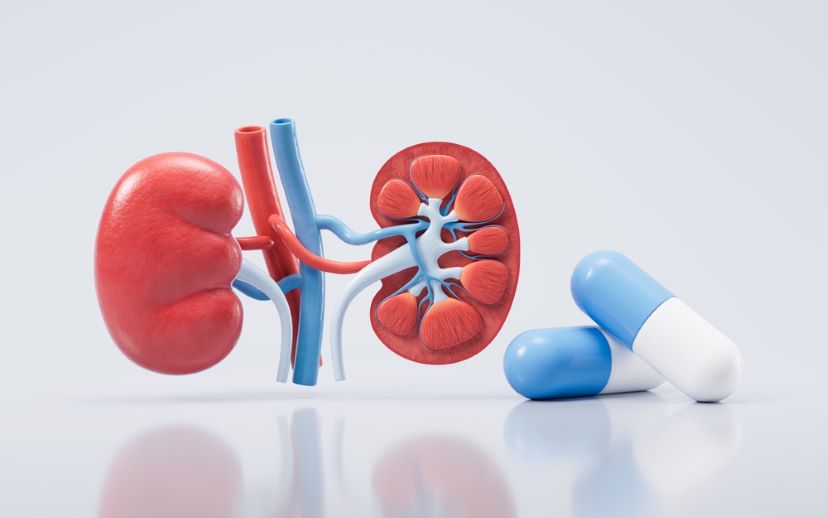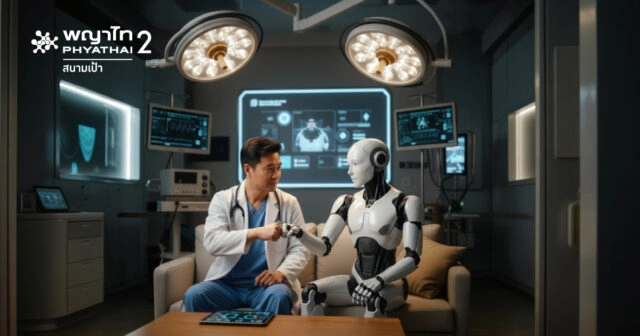Be Aware of Kidney Cancer – The Silent Threat That Can Be Life Threatening!

Kidney cancer is a serious disease caused by the abnormal and uncontrolled division of cells within the kidney, forming a malignant tumor. This cancer can spread to nearby organs or metastasize through the bloodstream and lymphatic system to other parts of the body, such as the lungs, bones, liver, or brain. If not detected early, it can significantly impact treatment outcomes and reduce the chances of survival.
Types of Kidney Cancer: What Are They?
There are several types of kidney cancer, but the most common types found in adults include:
1.Renal Cell Carcinoma (RCC):
This is the most common type of kidney cancer in adults, accounting for about 90% of all kidney cancer cases. It originates in the filtering units of the kidney. Many patients in this group are diagnosed incidentally through imaging that reveals a mass or cyst. If there are no noticeable symptoms and the mass is not detected early, the disease may progress to an advanced stage before the patient seeks medical attention.
2.Transitional Cell Carcinoma (TCC) of the Renal Pelvis:
This type arises from the lining of the urinary tract in the renal pelvis. It often presents as a polyp-like growth or a larger tumor in the renal pelvis lining. Patients typically visit the doctor due to symptoms such as blood in the urine (hematuria).
Risk Factors for Kidney Cancer
Several factors are associated with an increased risk of developing kidney cancer, including:
1.Smoking: Significantly raises the risk of kidney cancer.
2.Obesity and being overweight: Hormonal changes related to obesity may stimulate abnormal cell growth.
3.High blood pressure: A known risk factor for both kidney disease and kidney cancer.
4.Genetic conditions or inherited syndromes, such as Von Hippel-Lindau (VHL) syndrome, Birt-Hogg-Dubé (BHD) syndrome, and Tuberous Sclerosis (TS).
5.Exposure to certain chemicals, such as asbestos and cadmium.
6.Chronic kidney disease or end-stage renal failure, especially in patients on long-term dialysis or those with kidney cysts.
7. Kidney cysts with specific features, such as thick walls, irregular borders, or solid components within the cyst, may indicate a higher cancer risk.
Kidney Cancer Symptoms You Shouldn’t Ignore!
In the early stages, most kidney cancer patients show no noticeable symptoms. Because tumors are often small at first, many people remain unaware until more obvious symptoms appear, prompting them to seek medical attention. These symptoms may include:
- Blood in the urine (even if urination is painless)
- Unexplained pain in the back or side
- A lump or swelling in the abdomen
- Fatigue, unexplained weight loss, or loss of appetite
- Persistent low-grade fever with no clear cause
In some cases, patients may also experience high blood pressure or abnormal blood conditions such as anemia or polycythemia
Early awareness and recognition of these signs are crucial, as they may lead to diagnosis while the disease is still in its early and more treatable stages.
Diagnosing Kidney Cancer
The diagnostic process begins with a detailed medical history and physical examination, followed by additional tests such as:
- Ultrasound: To detect abnormal masses in the kidney
- CT KUB (Computed Tomography of the Kidneys, Ureters, and Bladder) or MRI (Magnetic Resonance Imaging): To provide detailed images of the tumor and assess its extent or spread
- Blood tests: To evaluate kidney function and identify any abnormal markers
- Urinalysis: To check for blood or unusual substances in the urine
- Biopsy: In selected cases, when imaging alone cannot confirm the diagnosis, a tissue sample may be taken for further analysis
Treatment Options
Kidney cancer treatment depends on the stage of the disease, the type of cancer cells, and the overall health of the patient. Main treatment approaches include:
1.Surgery:
Partial Nephrectomy: Suitable for small tumors or patients who need to preserve kidney function in the affected kidney
Radical Nephrectomy: Recommended when the tumor is large or located near major blood vessels
2.Immunotherapy:
Stimulates the immune system to fight cancer cells. This is often used in advanced-stage cancer or when the cancer has spread.
3.Targeted Therapy:
Uses drugs designed to specifically attack cancer cells while minimizing damage to normal cells.
4. Active Surveillance:
Involves close monitoring without immediate surgery. This approach is suitable for patients with small, slow-growing tumors who may have high surgical risks. Regular follow-up with imaging, such as CT scans, helps track the tumor’s progression.
Preventing Kidney Cancer Starts with You!
1.Quit smoking immediately
2.Maintain a healthy body weight
3. Keep your blood pressure under control
4.Exercise regularly
5.Eat a balanced diet and reduce intake of processed meats
6.Get annual health checkups—especially if you have a history of kidney disease or a family history of kidney cancer
Kidney Cancer Screening: What You Should Know
Currently, there are no universally established guidelines for routine kidney cancer screening. However, the incidence of kidney cancer is rising, and most patients do not show symptoms until the disease has already progressed to an advanced stage.
At that point, survival rates drop significantly compared to cases detected early. Therefore, screening may be considered for individuals with risk factors—especially those with chronic kidney disease, patients undergoing dialysis, individuals with hereditary syndromes related to kidney cancer, those with a family history of kidney cancer, or individuals found to have kidney masses or cysts.
Initial screening methods may include:
- Urine tests to detect blood or abnormal substances
- Ultrasound as a non-invasive imaging option
- Additional imaging tests such as CT KUB (Kidneys, Ureters, and Bladder) or MRI for clearer and more accurate visualization of abnormalities
As mentioned, kidney cancer often shows no symptoms in its early stages, but when symptoms do appear, they can be important warning signs. Annual health checkups, especially for those in high-risk groups, play a vital role in detecting the disease early—when treatment has a higher chance of being curative.
If you experience any unusual symptoms or have concerns about your kidney health, it’s important to consult a specialist for accurate evaluation and appropriate care.


